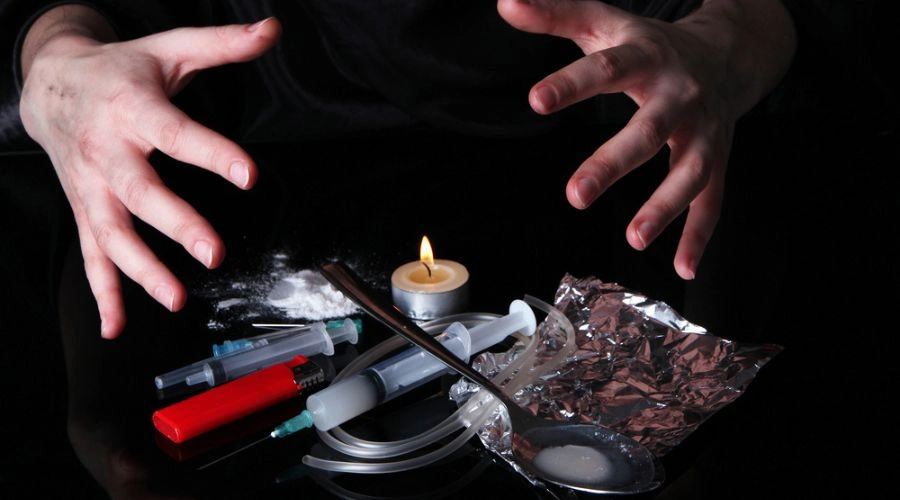The Duration And Retention of Fentanyl And Meth In The Body
This page will answer a simple but important question – how long does fentanyl and meth stay in your system? The damage that can be done by drugs like fentanyl and meth are well known at this point, but how these substances behave in your system isn’t necessarily common knowledge.
Knowing how long fentanyl stays in the body will help you understand how long withdrawal symptoms can be expected to persist. It also may be important information to have if there is an upcoming drug test to consider.
If you are facing a fentanyl addiction or meth addiction, getting professional help is an urgent matter. Substance abuse is serious in all of its forms, and that’s certainly the case with powerful drugs like these.
Call South Shores Detox today to learn more about the services we provide and to get started with your treatment and support as soon as possible.
An Overview of Fentanyl and Meth as Substances of Abuse
Fentanyl and meth are two of the most dangerous drugs in use today. Each is associated with high levels of dependence and serious health risks. More than many other substances, fentanyl and meth lead to overdose at extremely high rates.
While they are both quite dangerous, their effects on the body are quite different. Fentanyl is a synthetic opioid that can be as much as 100 times more potent than morphine. On the other hand, meth is a powerful stimulant. Individuals using meth typically experience dramatic increases in activity in the body and brain.
Factors Affecting Drug Retention in the Body
Anytime a drug is used, it will stay in your system for a certain period of time before it is processed out. That duration will depend on several factors. Not only does the time that a drug stays in your system depend on what drug has been used, but it will also vary from person to person.
The list below highlights some of the variables that come into play when determining how long it takes for any drug to clear your system.
- Dosage and frequency of drug use
- Method of ingestion, such as injected, smoked, or snorted
- Individual metabolism rate
- Age and body mass index
- Hydration levels and diet
- Overall health status
Given this many different factors coming into play, it’s easy to see why drug retention in the body can be hard to predict. Below, we’ll give some general outlines for how long fentanyl or meth stay in your system after drug abuse, but remember that these are just general guidelines.
How Long Does Fentanyl Stay in Your System?
Let’s take a closer look at the timeline you can expect when fentanyl is leaving your system. As a potent synthetic opioid, fentanyl can linger in your system for a while, although it doesn’t tend to stay as long as some of the other drugs in the opioid category.
When talking about drugs leaving your body, the term half life is often used. Simply put, the half life of a drug is the amount of time it takes for half of a drug to leave the body. In the case of fentanyl, that time ranges from 3 to 12 hours. That’s longer than the time that the effects of the drug will last, which is usually anywhere from 30 minutes to 2 hours.
If you are worried about passing urine tests after fentanyl abuse, it can take as long as 3 days or more before a test would come back clean. For saliva tests, that timeline can be extended out to 4 days or longer.
Different testing methods have different abilities to catch drugs in your system as time passes since the last use. Hair tests tend to be the most sensitive, with the potential to track fentanyl use even three months after you last used the drug.
How Long Does Meth Stay in Your System?
In general, the timelines we mentioned above are going to be longer when discussing meth. The half life of this drug ranges from 10 to 12 hours, and the duration of the effects of the drug are from 6 to 24 hours. Urine tests can detect meth as much as a week after it was used, with saliva tests being similar to fentanyl at about 4 days. Blood tests for meth can be effective for roughly 3 days.
These numbers are going to be significantly influenced by how long you have been using meth, and how much you have been using. For a heavy meth user, there will likely be some trace of the drug still in the body even after 10 days or more. Someone who has built up a physical dependence on the drug will likely use it in large quantities and it will therefore take much longer to clear.
Onset and Duration of Withdrawal Symptoms
The timeline of withdrawal symptoms from fentanyl addiction or meth use doesn’t line up perfectly with the timelines we shared above. In fact, withdrawal symptoms usually lag the process of the drugs leaving your body. In other words, your withdrawal symptoms will get worse as the drug fades and your body begins to crave it.
The duration fentanyl stays in your body may only be a couple of days in some cases, but withdrawal symptoms can last up to 10 days or even longer. Those symptoms will usually peak around 3 days after the last dose.
While specific symptoms will vary from person to person, some of the common ones include powerful cravings for the drug, muscle aches, nausea, sweating, anxiety, and insomnia.
Meth withdrawal symptoms will start to come in within 24 hours of the last use, and like fentanyl, tend to peak at about 2 or 3 days. These symptoms can last a couple of weeks or longer and may include severe pain, depression, irritability, extreme fatigue, and more.
It should also be mentioned that there are emotional symptoms of withdrawal that tend to last even longer than the physical symptoms. You will likely need to engage in therapy and other forms of treatment for an extended period to deal with these emotional symptoms and maintain sobriety.
The Dangers of Detoxing from Meth and Fentanyl Alone
Working with a healthcare professional on the detox process is the right way to proceed when trying to stop the use of fentanyl or meth. While you might be able to do it on your own – or, at least, attempt it – going through detox with medical professionals by your side is far safer and more successful for most people.
There are dangerous side effects of stopping the use of these drugs that you don’t want to encounter without medical supervision in place.
For example, when you stop using fentanyl, it’s possible that you’ll deal with complications like dehydration, high blood pressure, and heart rate abnormalities.
If severe enough, those issues can be life-threatening. It’s always hard to get away from substance use after taking high doses of powerful drugs, but the process can be made a little easier with a compassionate team on your side.
It’s no safer to detox alone from meth. Specifically, you’ll need to work around the psychological effects of quitting this drug cold turkey on your own. There is a high risk of self harm in this situation, as you might have a significant increase in depression symptoms and suicidal thoughts.
Why is Meth so Difficult to Put Down for Good?
Recreational use of meth is so difficult to stop because these unpleasant thoughts can pop up rather quickly after your last dose. Chronic users are wise to attempt to quit, and you can mitigate some of the significant risks by going through detox in a rehab facility.
One other potential danger of detox alone is relapsing back into drug use shortly after a successful detox. Even if you manage to make it through detox alone, which won’t be easy, you still won’t have a plan for how to move forward.
The drug is no longer detectable in your system, but the underlying mental health challenges that pushed you to substance abuse are still there and need to be treated. Professional detox will lead right into professional treatment, so you’ll have a comprehensive plan to address this problem once and for all.
Choose South Shores: Get Help Staying Clean for Good
It’s possible to detox from fentanyl abuse or meth abuse on your own, but that is a risky – and difficult – proposition. It’s far better to proceed with treatment at a licensed facility that is staffed by experienced professionals.
Put an end to your fentanyl use as soon as possible with help from the team at South Shores Detox. The medical detox process is controlled and predictable, and will make it far more likely that you are able to leave these extremely dangerous drugs in the past.
Make the call today to get help. It might not be easy to pick up the phone, but you’ll be glad you did. There is a whole new life out there for you, just waiting to be explored. We’d love to be a part of making that new life a reality.




